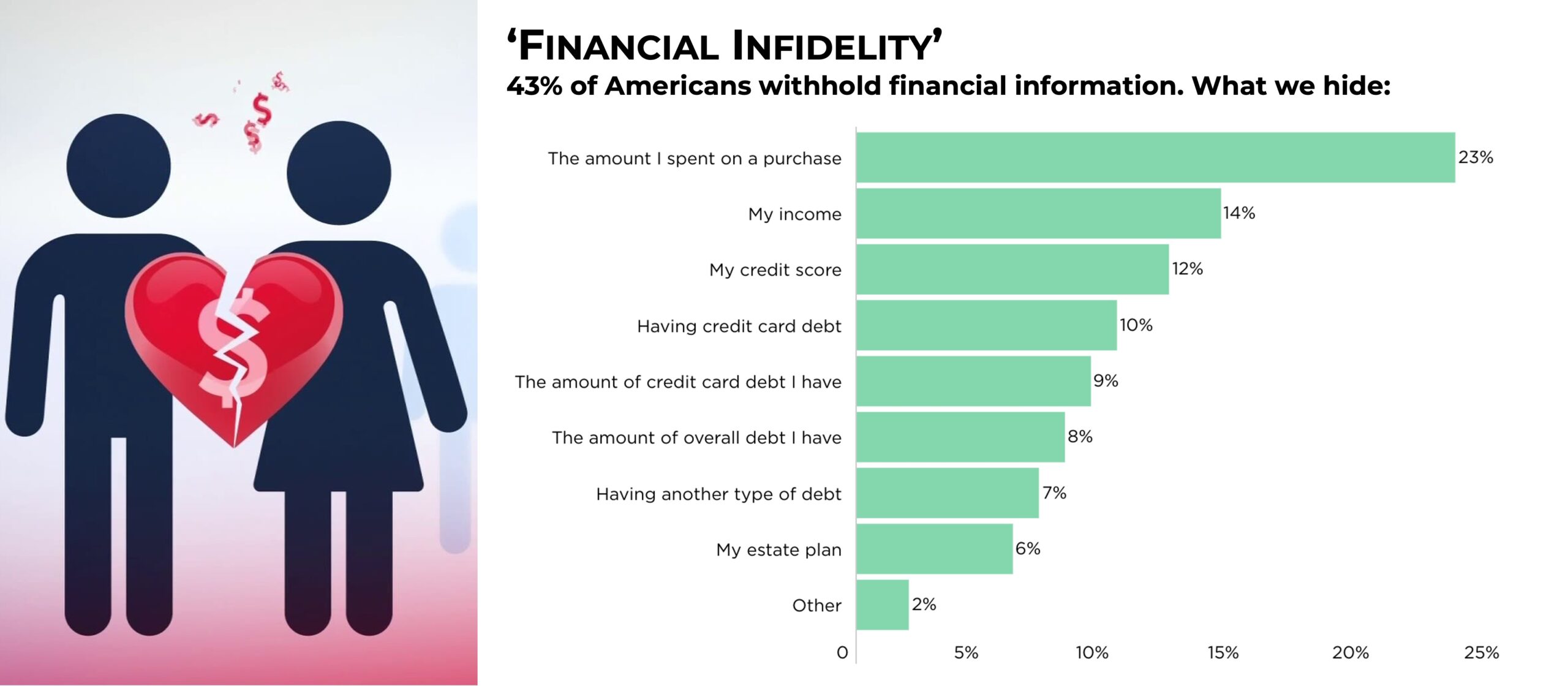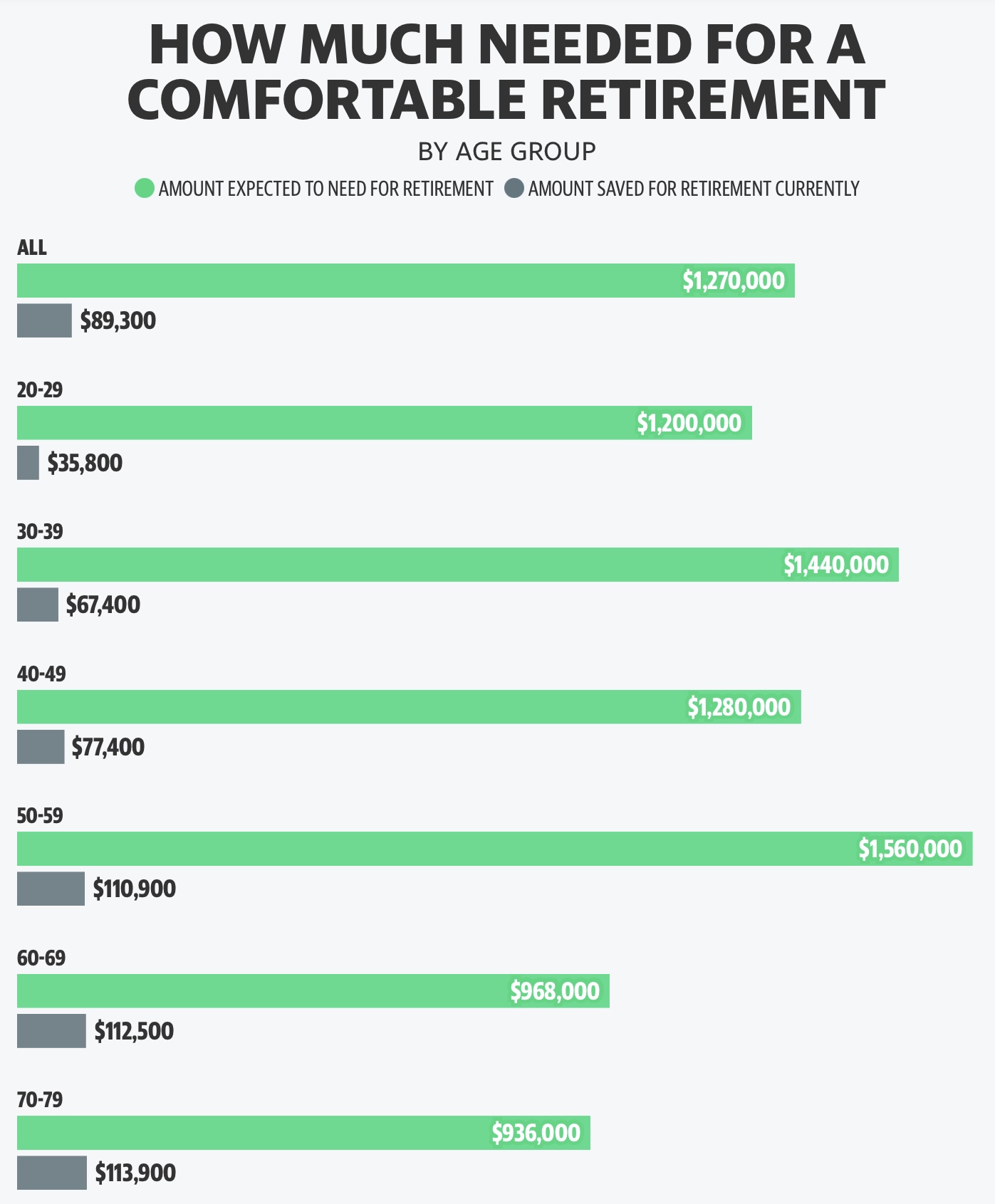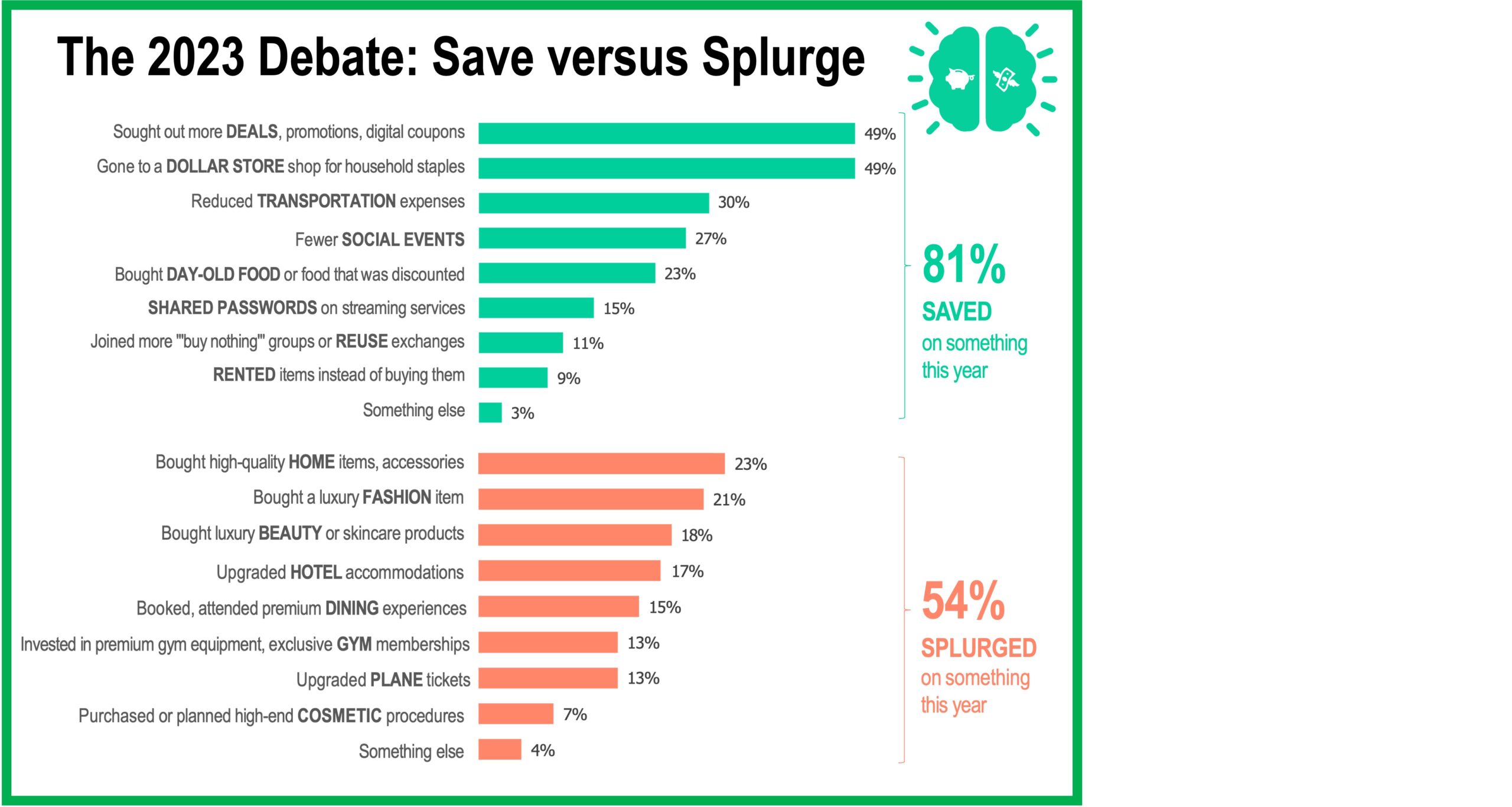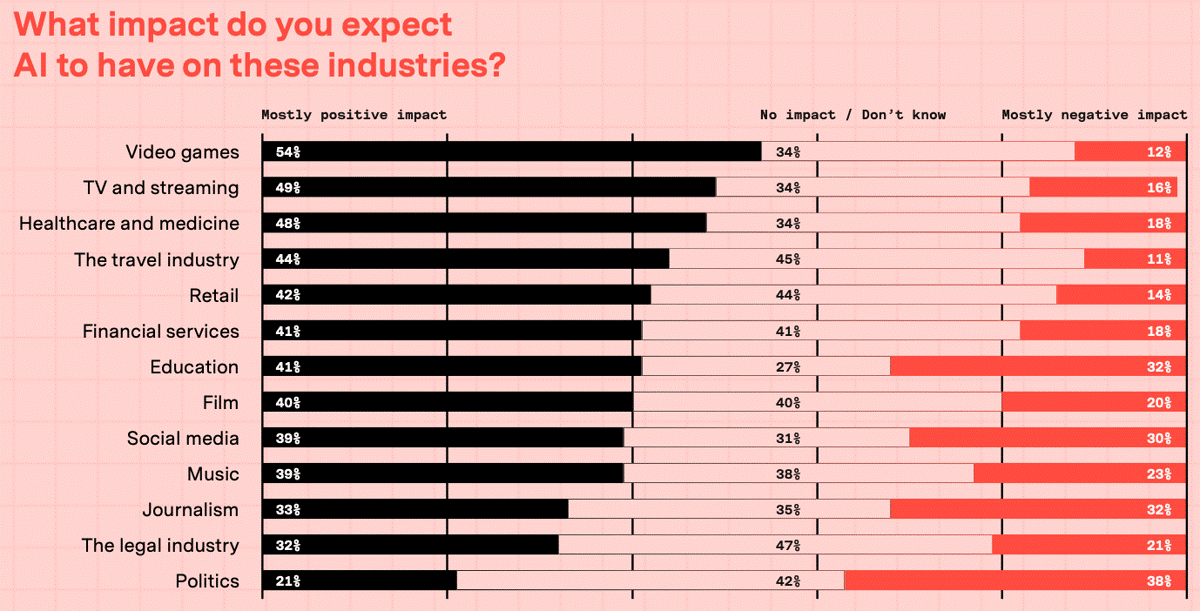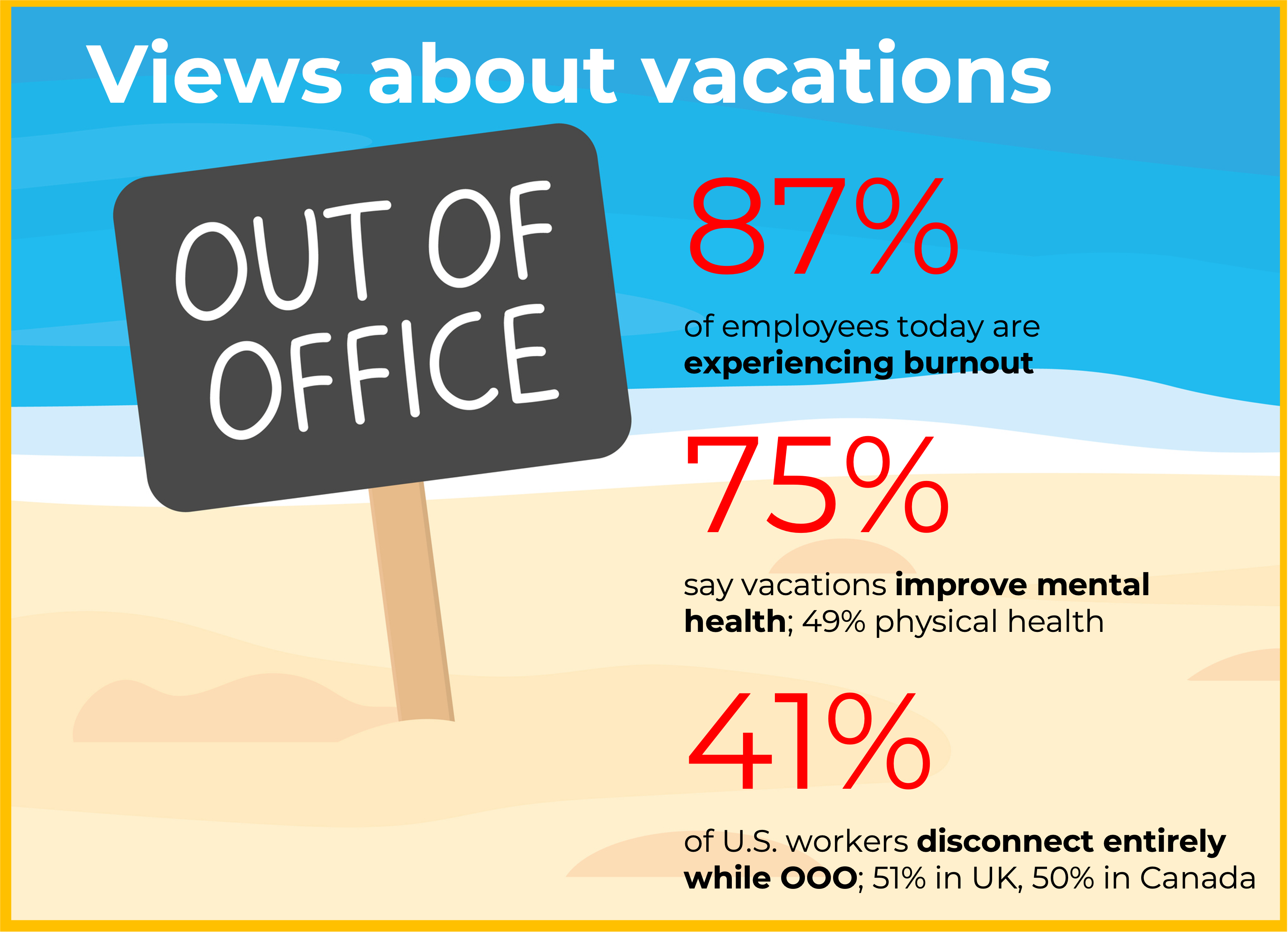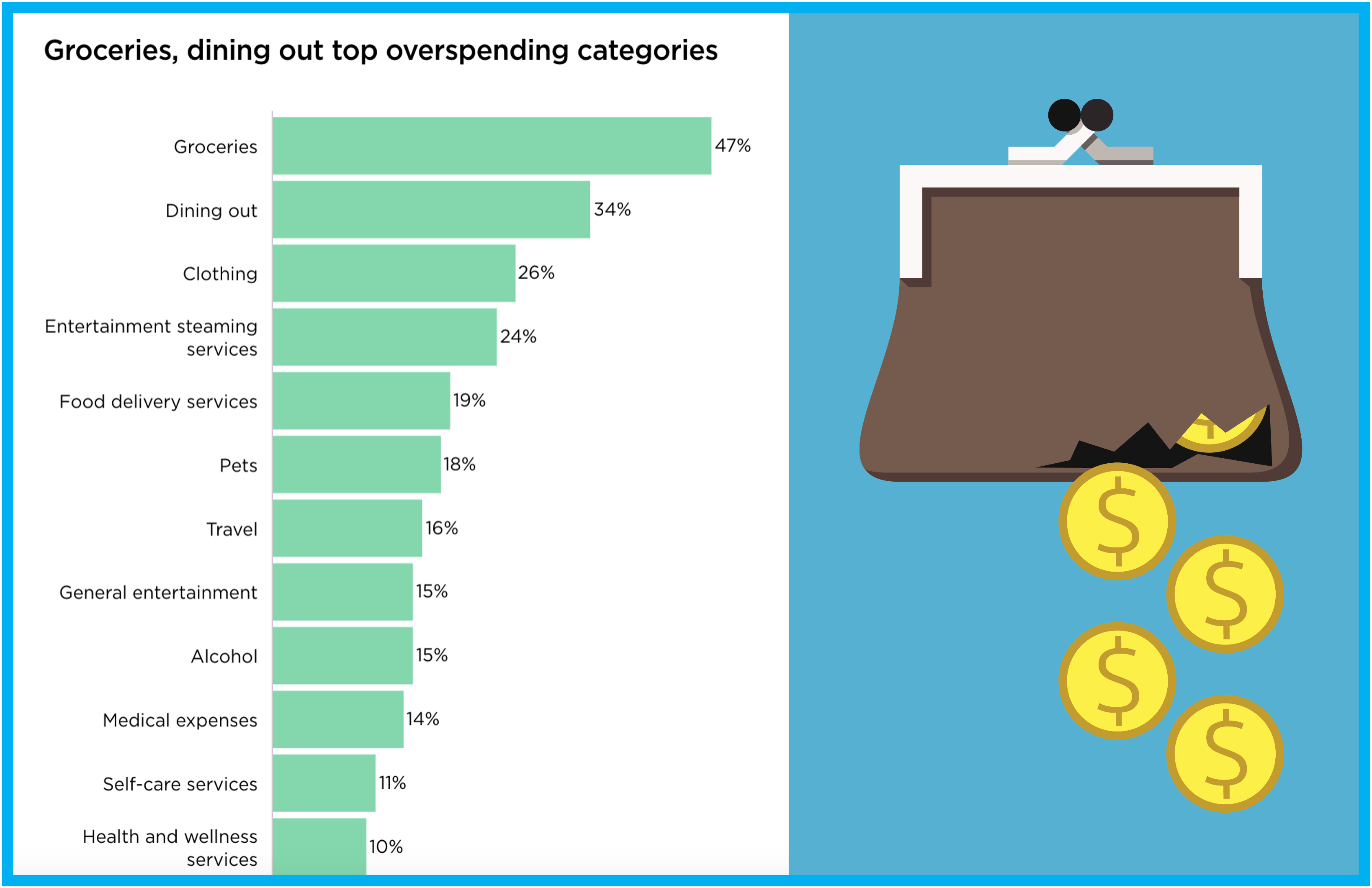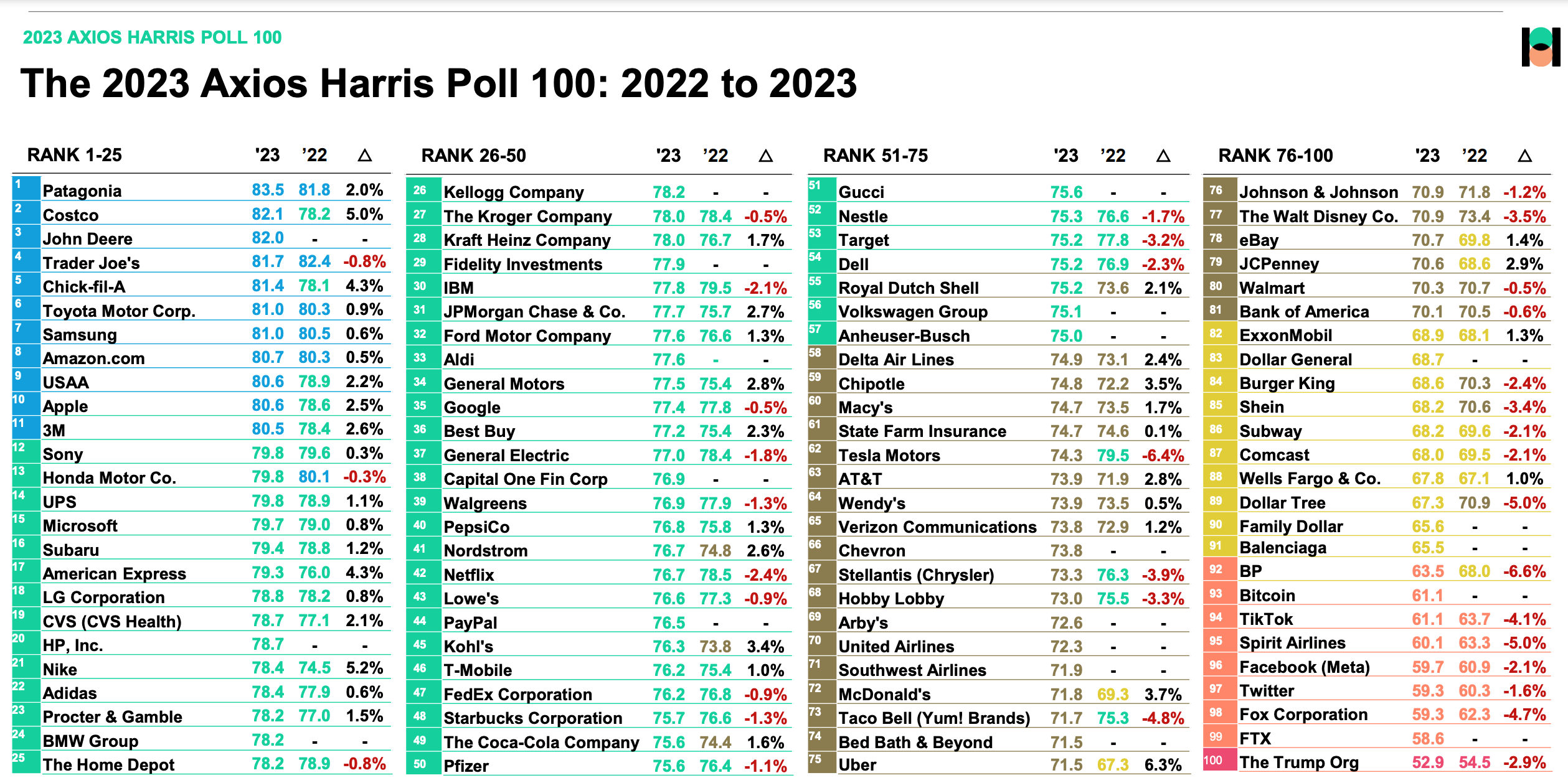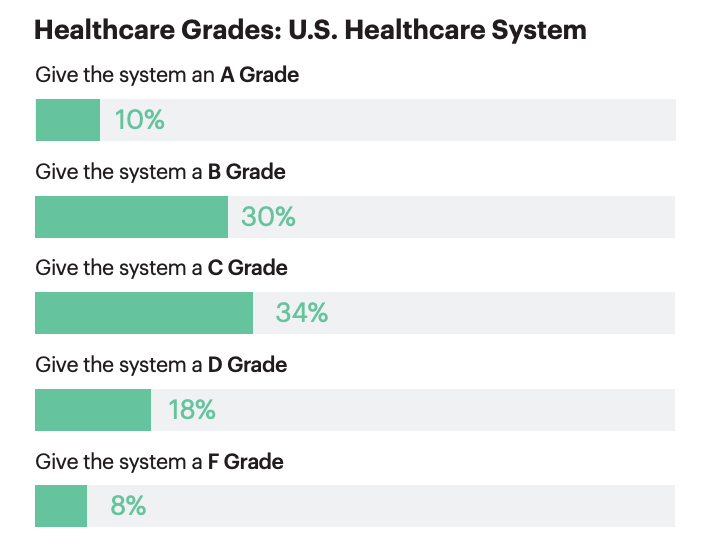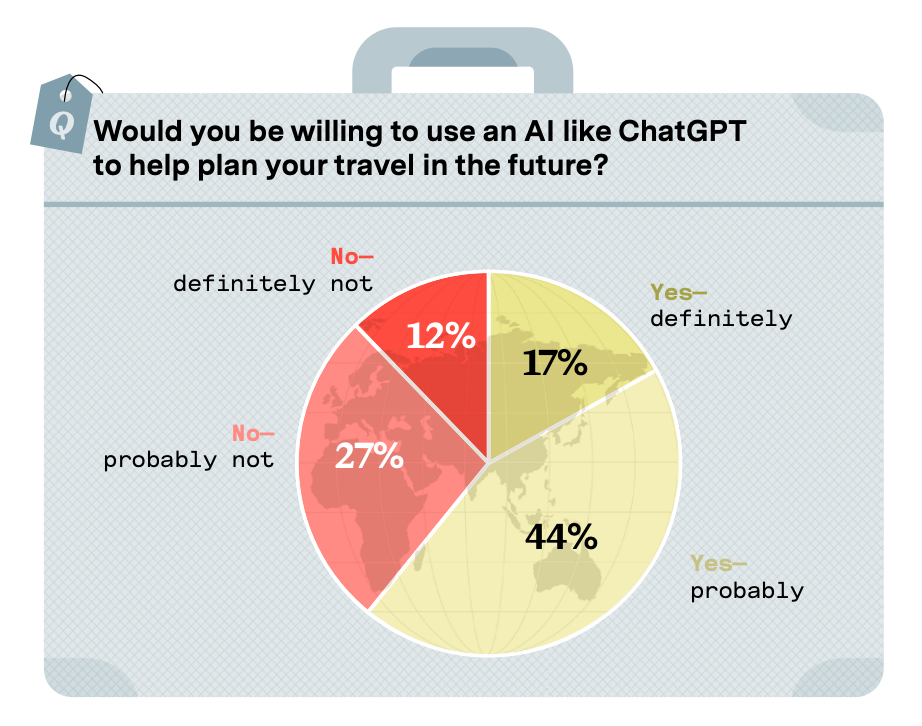By: Ray Day
CONTACT:
We wanted to share our latest consumer and business insights, based on research from Stagwell. Among the highlights of our weekly consumer sentiment tracking (fielded July 7-9):
WEEKLY WORRIES ABOUT ECONOMY EDGE UP
Today, 85% of Americans are concerned about the economy and inflation – up 1 point from last week and higher than December’s 82% rate.
- 81% worry about a potential U.S. recession (up 1 point)
- 70% about affording living expenses (up 2 points)
- 75% about political divisiveness (up 4 points)
- 83% about U.S. crime rates (up 3 points)
- 68% about the War on Ukraine (up 4 points)
- 51% about a new COVID-19 variant (up 1 point)
- 48% about losing their jobs (up 3 points)
THREADS STRIKES A CHORD
In just more than a week, Threads – the Twitter rival by Meta – has stormed into the limelight, dominating headlines and swiftly amassing more than 100 million users. Stagwell’s National Research Group took a quick pulse on what consumers think about the new app in a new “Threads Strikes a Chord” report.
- 49% of Americans have heard of Threads.
- 26% say they are interested in or have signed up.
- Among those interested in signing up for Threads, connection is cited a key driver for using it.
- 57% say they would prefer to see Threads take a traditional advertising route with sponsored posts, similar to Facebook and Twitter advertising.
TOXIC WORKPLACES
Two of five Americans say their workplace is toxic, and those who reported a toxic workplace are more than three times as likely to have said they have experienced harm to their mental health at work. The Harris Poll’s partnership with the American Psychological Association’s 2023 Work in America Survey also showed:
- More than 1 in 5 workers (22%) said they have experienced harm to their mental health at work.
- 22% of workers said they experienced harassment at work in the past 12 months – an increase from 14% in 2022.
- Those who work in customer/client/patient service jobs (31%) were more likely than manual laborers (23%) and office workers (22%) to report experiencing verbal abuse at work.
- 12% reported that someone within their organization displayed physical violence toward them.
- Despite such challenges, the data also show there is improvement in the workplace regarding mental health support. 77% of workers reported being very (36%) or somewhat (41%) satisfied with the support for mental health and well-being they receive from their employers.
- More than half (59%) strongly (22%) or somewhat (37%) agreed that their employer regularly provides information about available mental health resources.
AMERICANS DIG OUT OF DEBT
The average American with debt owes $21,800 outside of mortgages in 2023 – and that’s good news, according to our Harris Poll survey with Northwestern Mutual.
- Debt has been declining for years and is now $8,000 lower than the average in 2019.
- 28% of all debt is for credit cards, followed by 12% for auto loans.
- 35% of Americans say they’re carrying close to or at their highest level of debt ever.
- 43% who have personal debt say they’re currently carrying close to or at their lowest level of debt ever.
- People who carry personal debt say 30% of their monthly income goes toward paying it off.
- 49% of Americans expect to remain in debt for one to five years, followed by 21% who expect debts to last six to 10 years and 10% who expect to be in debt “the rest of my life.”
RETIREMENT LOOKS OUT OF REACH TO MANY
Retirement security across generations is faltering, based on a new Harris Poll survey with the Transamerica Institute and the Transamerica Center for Retirement Studies.
- 41% of U.S. employees say future generations of retirees will be worse off than those currently in retirement.
- Gen Z already is dipping into their retirement savings – with 57% reporting trouble making ends meet and 28% dipping into their retirement savings by taking a hardship withdrawal or early withdrawal from a 401(k).
- Millennials are feeling similar pressure – and say their current financial priorities are: paying off debt (60%); saving for retirement (52%); building emergency savings (46%); supporting children (44%); and supporting their parents (17%).
- Overall, retirement is looking increasingly out of reach, with more than half (52%) of employees say they expect to work past age 65 or don’t plan to retire.
- Among these respondents, 40% said they expect to retire at age 70 or older.
ICYMI
In case you missed it, check out some of the thought-leadership and happenings around Stagwell making news:
Related
Articles
In the News, Investments & Financials, Press Releases, Talent & Awards
Jul 08, 2025
Stagwell (STGW) Advances Executive Team with Four Key Appointments

In the News, Press Releases, Thought Leadership
Jun 10, 2025
Stagwell (STGW) Chairman and CEO Mark Penn to Discuss the Irreplaceable Power of Human Creativity on the Main Stage of Cannes Lions

Events, In the News, Press Releases, Talent & Awards
Jun 05, 2025
Code and Theory Named ANA B2B Agency of the Year After Transforming the World’s Leading Brands

Newsletter
Sign Up
By: Ray Day
CONTACT:
We wanted to share our latest consumer and business insights, based on research from Stagwell. Among the highlights of our weekly consumer sentiment tracking (fielded June 30 – July 2):
WEEKLY WORRIES ABOUT ECONOMY SUBSIDE
Today, 84% of Americans are concerned about the economy and inflation – down 3 points from last week, yet higher than December’s 82% rate.
- 80% worry about a potential U.S. recession (no change)
- 68% about affording living expenses (down 6 points)
- 71% about political divisiveness (down 5 points)
- 80% about U.S. crime rates (down 2 points)
- 64% about the War on Ukraine (down 3 points)
- 50% about a new COVID-19 variant (down 2 points)
- 45% about losing their jobs (down 5 points)
YOUNGER AMERICANS NOT AS PATRIOTIC
As the U.S. celebrated its birthday this week, young people are not as proud to be Americans as older citizens, according to our HarrisX survey with The Messenger.
- 91% say that they are proud to be an American, including 69% who are “very proud.”
- Those 65 and older are the proudest (97%), while those ages 18 to 34 are the least proud (75%).
- 72% say that America is the greatest country in the world – yet that declines to 52% among those ages 18 to 34.
- Even with overall patriotic positivity, the same cannot be said for elected officials. Only 22% say that the government has America’s best interest at heart.
- 78% say that politicians prioritize their personal agendas.
- 24% say the signers of the Declaration of Independence would be pleased with how the country has turned out, while 61% said they would be disappointed.
- The worst parts about living in America today, according to the survey, are gun violence (54%), the role of money in politics (48%), healthcare costs (47%) and racial tensions and inequality (47%).
FINANCIAL INFIDELITY
Nearly half of Americans believe it’s okay to have savings that their significant other doesn’t know about, and 40% think it’s embarrassing for a person to have credit card debt, according to our Harris Poll survey with NerdWallet.
- 43% say they have withheld financial information or lied about it to their significant other.
- 49% believe it is okay to have savings that a significant other doesn’t know about.
- The top secrets: amount spent on a purchase (23%), income (14%) and credit scores (12%).
- 39% also say they’ve withheld financial information or lied about it to their parents.
- Younger Americans are more likely to say they’ve lied or withheld financial information from their partners – including 63% of Gen Z and 58% of Millennials versus 44% of Gen X and 19% of Boomers.
COMPANIES TARGET WASTED TIME
Nearly 70% of U.S. hiring managers say their companies are actively identifying and/or eliminating employee time wasters, such as online distractions and unnecessary meetings, according to our Harris Poll survey with Express Employment Professionals.
- The most common time-wasters are disorganization (44%), online distractions (44%), unnecessary tasks like approval processes and reporting (42%), interruptions (39%) and unnecessary meetings (38%).
- At the same time, 87% of hiring managers say their company has taken actions to ensure employees feel more in control.
- Communicating the importance of work/life balance (42%), offering flexible work hours (42%), offering remote work options (34%) and providing tools to help employees organize tasks/projects (34%) are among the ways companies are attempting to help employees reclaim their time.
SUN’S OUT – FEAR OF SWIMMING IS, TOO
Only 63% of U.S. adults say they are comfortable around water, and 36% do not know how to swim. Our Harris Poll survey with Leslie’s also shows:
- Nearly half of parents with children under 18 say their child does not know how to swim, and 61% say their child has not taken swimming lessons.
- 30% of parents say they are concerned about their child drowning.
- Drowning is the leading cause of accidental death in the U.S. among children ages 1 to 4, and 30% of the drowning deaths occur in swimming pools.
ICYMI
In case you missed it, check out some of the thought-leadership and happenings around Stagwell making news:
- If You Have a Blue Brand or a Red Brand, You Have Less of a Brand.
- Companies start to recognize the importance of ‘out of office’ time to reduce employee burnout
- Social media filters impacting children’s body image
- Key Data Spotlights The State Of Wealth And Health At The Global Black Economic Forum
Related
Articles
In the News, Investments & Financials, Press Releases, Talent & Awards
Jul 08, 2025
Stagwell (STGW) Advances Executive Team with Four Key Appointments

In the News, Press Releases, Thought Leadership
Jun 10, 2025
Stagwell (STGW) Chairman and CEO Mark Penn to Discuss the Irreplaceable Power of Human Creativity on the Main Stage of Cannes Lions

Events, In the News, Press Releases, Talent & Awards
Jun 05, 2025
Code and Theory Named ANA B2B Agency of the Year After Transforming the World’s Leading Brands

Newsletter
Sign Up
By: Ray Day
CONTACT:
We wanted to share our latest consumer and business insights, based on research from Stagwell. Among the highlights of our weekly consumer sentiment tracking (fielded June 23-25):
WEEKLY WORRIES ABOUT ECONOMY EDGE UP
Today, 87% of Americans are concerned about the economy and inflation – up 1 point from last week and higher than December’s 82% rate.
- 80% worry about a potential U.S. recession (up 1 point)
- 74% about affording living expenses (up 3 points)
- 76% about political divisiveness (up 3 points)
- 82% about U.S. crime rates (no change)
- 67% about the War on Ukraine (up 2 points)
- 52% about a new COVID-19 variant (no change)
- 50% about losing their jobs (up 3 points)
SCOTUS COLLEGE RULING MATCHES MOST AMERICANS’ VIEWS
This week’s Supreme Court decision to strike down race-based college admissions programs matches the majority of Americans’ opinions on the issue, according to our most recent poll with the Center for American Political Studies at Harvard University.
- 74% of voters say that college admissions should be determined only on qualifications and that race should not be a factor – 66% among Democrats, 74% among Independents and 82% among Republicans.
- A majority of every age group, racial group and gender also agree – including 56% of Black voters and 54% of 18-to-34-year-old voters.
- Voters are similarly opposed to racial preferences in other selection processes, such as medical school admissions (76% opposed) and corporate hiring (84% opposed).
BUSINESSES MOST EXCITED ABOUT AI FOR EMPLOYEE PRODUCTIVITY AND CUSTOMER SERVICE
U.S. business leaders are eager to adopt generative AI at their companies to improve operations, but concerns around quality and security are real, according to our Harris Poll survey with Insight Enterprises.
- In the next 12 months, increasing revenue and driving innovation are business leaders’ top two priorities.
- Yet 49% also say keeping pace with competitors on technological innovation is a top challenge.
- Leaders say they are turning to generative AI technologies within the next three years to: improve employee productivity (72%); customer service (66%); assist with research and development (53%); and automate software development (50%).
- 81% of companies today have generative AI policies and/or strategies established or in the works.
- AI excitement is not without concerns: Half of the respondents expressed concerns about the implementation of generative AI technologies at their organization, with quality and control (51%) and safety and security risks (49%) topping the list.
YOUNG PEOPLE PLAN TO RETIRE EARLIER BUT SAVE LESS
A striking discrepancy exists between Gen Z’s expectations versus the reality of their retirement, our Harris Poll study with Northwestern Mutual found.
- Gen Z expects to retire more than a decade earlier (at age 60) than Boomers’ expectation (age 71). That compares with Millennials’ (age 63) and Gen X’s (age 65) expectations.
- 28% of Americans think they likely will live to 100. Expectations are greater among younger adults, with 40% of Gen Z and Millennials expecting to hit triple digits.
- Yet Gen Z also is underestimating their retirement nest egg. Gen Z members expect to need $1.2 million to fund that 40-year retirement – compared with $1.27 million for all Americans.
- Just 52% of all Americans say they expect to be financially prepared for retirement. Comfort is lowest for Gen X (45%) and highest for Gen Z (65%).
AMERICANS PREPARED TO SPEND ON WEIGHT LOSS DRUGS
Half of Americans would be willing to spend up to $100 a month for weight loss medicines like Wegovy, and one-third would pay whatever they can afford, according to our Harris Poll survey with STAT.
- 56% of Americans today are concerned with their weight, and 39% say their doctors are concerned.
- Half (46%) of Americans are familiar with new weight-loss medications – highest among parents with kids (63%) and Millennials (61%).
- 44% of Americans would spend up to $100 a month for the drugs, 23% $100 to $249 a month, 17% $250 to $499 a month and 11% $500 to $1,000 a month.
ICYMI
In case you missed it, check out some of the thought-leadership and happenings around Stagwell making news:
Related
Articles
In the News, Investments & Financials, Press Releases, Talent & Awards
Jul 08, 2025
Stagwell (STGW) Advances Executive Team with Four Key Appointments

In the News, Press Releases, Thought Leadership
Jun 10, 2025
Stagwell (STGW) Chairman and CEO Mark Penn to Discuss the Irreplaceable Power of Human Creativity on the Main Stage of Cannes Lions

Events, In the News, Press Releases, Talent & Awards
Jun 05, 2025
Code and Theory Named ANA B2B Agency of the Year After Transforming the World’s Leading Brands

Newsletter
Sign Up
By: Ray Day
CONTACT:
We wanted to share our latest consumer and business insights, based on research from Stagwell. Among the highlights of our weekly consumer sentiment tracking (fielded June 16-18):
WEEKLY WORRIES ABOUT ECONOMY IMPROVE
Today, 86% of Americans are concerned about the economy and inflation – down 1 point from last week but higher than December’s 82% rate.
- 79% worry about a potential U.S. recession (down 4 points)
- 71% about affording living expenses (down 2 points)
- 73% about political divisiveness (down 4 points)
- 82% about U.S. crime rates (down 2 points)
- 65% about the War on Ukraine (down 3 points)
- 52% about a new COVID-19 variant (down 4 points)
- 47% about losing their jobs (down 1 point)
MOOD OF THE COUNTRY REMAINS NEGATIVE
Today, less than a third of Americans say the country is on the “right track,” and two thirds believe the economy is headed in the wrong direction. These are among the insights in our latest poll with the Center for American Political Studies at Harvard University.
- The U.S. military (79% favorable/12% unfavorable for 68% net favorable) and police (66% favorable/23% unfavorable for 44% net favorable) are the most highly viewed institutions today. MAGA Republicans (34% favorable/45% unfavorable for 11% net unfavorable) and CNN (42% favorable/42% unfavorable for divided favorability) are viewed more unfavorably.
- American have mixed views on electric vehicles – with 59% opposing government regulations that would require at least half of all cars sold in the U.S. by 2030 to be electric and half of Americans believing EVs produce just as much pollution through the car battery mining and production process.
- School satisfaction remains high, but parents want to protect their rights. Today, 74% of parents with school-aged children – including majorities of all parties – think schools are respecting their rights as parents. Yet 77% oppose a law in their state that would allow minors to have gender-changing surgery and puberty blockers without parental permission.
BUDGET CUTS HELP AMERICANS AFFORD A SPLURGE
Persistently high prices are forcing many Americans to be creative with their budgets. Yet cutting back on everyday purchases also allows consumers to afford the occasional splurge, according to our latest Harris Poll survey.
- 81% of Americans have implemented cost-saving measures this year, such as trading down, shopping at less expensive retailers or substituting cheaper alternatives for name-brand products.
- 58% or all Americans and 67% of Millennials would rather cut back on everyday basics to afford the occasional splurge.
- 54% have splurged already on something in 2023, such as high-quality home items and accessories, a luxury fashion item and luxury beauty/skincare products.
- More younger Americans having splurged, including 75% of Gen Z and 68% of Millennials.
- 30% of Americans say they have splurged on premium experiences or luxury items they couldn’t afford, especially younger consumers (50% of Millennials and 40% of Gen Z).
TEACHERS SOUND OFF
Two out of five public school teachers have either seriously considered leaving the profession in the past or are planning to do so by the end of the year, according to our Harris Poll survey with the National Alliance for Public Charter Schools.
- 97% of teachers say they wish people understood how demanding it is to be a teacher.
- Being a teacher during the past few years has made them feel overwhelmed (72%), burned out (67%) and worried/anxious (58%).
- Public school teachers cite student behavior and discipline issues (74%) as the top challenges, followed by pay (65%).
- 94% of teachers say they just want to teach, and 91% report feeling like they are becoming caught in the crossfire of a culture war.
- Only 7% of respondents say they are motivated to teach because it pays well.
- 84% of public school teachers believe higher pay and better benefits would help teachers feel more motivated to stay in the profession.
- Charter schools boast higher satisfaction among teachers: 97% of charter school teachers say they are satisfied in their job versus 83% for district teachers.
ICYMI
In case you missed it, check out some of the thought-leadership and happenings around Stagwell making news:
Related
Articles
In the News, Investments & Financials, Press Releases, Talent & Awards
Jul 08, 2025
Stagwell (STGW) Advances Executive Team with Four Key Appointments

In the News, Press Releases, Thought Leadership
Jun 10, 2025
Stagwell (STGW) Chairman and CEO Mark Penn to Discuss the Irreplaceable Power of Human Creativity on the Main Stage of Cannes Lions

Events, In the News, Press Releases, Talent & Awards
Jun 05, 2025
Code and Theory Named ANA B2B Agency of the Year After Transforming the World’s Leading Brands

Newsletter
Sign Up
By: Ray Day
CONTACT:
We wanted to share our latest consumer and business insights, based on research from Stagwell. Among the highlights of our weekly consumer sentiment tracking (fielded June 9-11):
WEEKLY WORRIES ABOUT ECONOMY UP AGAIN
Today, 87% of Americans are concerned about the economy and inflation – up 2 points from last week and higher than December’s 82% rate.
- 83% worry about a potential U.S. recession (up 3 points)
- 73% about affording living expenses (up 6 points)
- 77% about political divisiveness (up 3 points)
- 84% about U.S. crime rates (up 3 points)
- 68% about the War on Ukraine (up 2 points)
- 56% about a new COVID-19 variant (up 2 points)
- 48% about losing their jobs (up 4 points)
AI HUMAN VERSUS MACHINE
While many people are focusing on AI as a technology, the real opportunity is about people, according to Stagwell’s National Research Group’s new “The AI-Powered Human” report. The research identifies five key areas of daily life in which consumers see the most benefit from the combination of human + machine:
- AI as a personal admin – to aid with daily productivity, travel, shopping, automotive and kids.
- Building productivity at work.
- Improving creativity and self-expression – especially for social media, art and music.
- Connecting with others – particularly for community engagement and dating.
- Wellbeing and personal development – especially in healthcare and education.
- Yet consumers are skeptical about the application of AI in areas of their lives driven by emotion and human connection – especially journalism, politics and the legal industry.
JOB HUNTING A PAIN FOR COLLEGE GRADS
Job hunting is becoming increasingly unpleasant and taking longer, according to our Harris Poll survey with TIME.
- Job hunting is most problematic today for people with a college degree: 51% of job seekers with bachelor’s degrees who had at least one interview completed the interview process without receiving an offer. That compares with 35% with a high school diploma.
- Those with a bachelor’s degree (41%) also are more likely than those with a high school diploma (33%) to be asked to complete a job skills assessment; to be asked to do a one-way interview (37% for college grads versus 23% for those with a high school diploma) in which they record themselves answering pre-set questions; and to report inconsistencies (38% for college grads versus 16% for those with a high school diploma) between the job requirements and salary range listed in the posting versus what they were told later on in the interview process.
CAPITALISM QUESTIONED
Is capitalism still working? That’s the question The Harris Poll and Forbes asked in a new survey on “the State of American Capitalism.” Among the insights:
- 46% of Americans believe that capitalism is headed in the wrong direction.
- 62% say it particularly isn’t working for younger generations as it did for older ones.
- 62% agree that capitalism isn’t allowing Americans to meet their basic needs – jumping to 66% among Gen Z, 65% among women and 65% among people of color.
- That said, 70% say that, while capitalism isn’t perfect, it’s still the best option.
- 58% feel capitalism leads to innovation and creativity rather than stagnation.
- 57% say they are willing to pay more for goods and services to guarantee living wages for workers.
- See also: Madison Avenue Takes on Capitalism
EMPLOYER BRAND KEY TO A STRONG REPUTATION
A company’s employer brand – the way its culture and employee experience is perceived – has a major impact on its reputation, according to this year’s Axios Harris Poll 100 rankings.
- Consumers increasingly care about the internal workings of a company and favor those that are ethical, exhibit good citizenship and have a strong company culture.
- Patagonia, Costco, John Deere, USAA, Samsung, Honda, Chick-fil-A, Trader Joe’s, Apple and Microsoft have the best employee cultures today.
- 79% of Americans say that companies will need to rebrand and evolve to stay relevant in the coming years.
- 75% also say this should be rebranding the company’s ethics and values.
- When asked what could be done to build an employee brand, paying employees a living wage (50%) is far ahead of reward programs and employee discounts.
ICYMI
In case you missed it, check out some of the thought-leadership and happenings around Stagwell making news:
- Mark Penn: Political Season Is in Full Swing. Brands Beware.
- Gen Xers and older millennials really just want to go back in time to before the internet existed
- 90% of 2023 graduates think college is really worth it. Here’s why they’re right–and politicians and pundits are wrong
- More than Two-Thirds of Americans are Concerned About Germs in Indoor Spaces
Related
Articles
In the News, Investments & Financials, Press Releases, Talent & Awards
Jul 08, 2025
Stagwell (STGW) Advances Executive Team with Four Key Appointments

In the News, Press Releases, Thought Leadership
Jun 10, 2025
Stagwell (STGW) Chairman and CEO Mark Penn to Discuss the Irreplaceable Power of Human Creativity on the Main Stage of Cannes Lions

Events, In the News, Press Releases, Talent & Awards
Jun 05, 2025
Code and Theory Named ANA B2B Agency of the Year After Transforming the World’s Leading Brands

Newsletter
Sign Up
By: Ray Day
CONTACT:
We wanted to share our latest consumer and business insights, based on research from Stagwell. Among the highlights of our weekly consumer sentiment tracking (fielded June 2-4):
WORRIES ABOUT ECONOMY IMPROVE
Today, 85% of Americans are concerned about the economy and inflation – down 2 points from last week and higher than December’s 82% rate.
- 80% worry about a potential U.S. recession (down 2 points)
- 67% about affording living expenses (down 4 points)
- 74% about political divisiveness (down 3 points)
- 81% about U.S. crime rates (down 3 points)
- 66% about the War on Ukraine (down 4 points)
- 54% about a new COVID-19 variant (no change)
- 44% about losing their jobs (down 3 points)
READY FOR A VACATION
With the arrival of warmer weather in North America and Europe, employees are turning their attention to time away. Yet, based on our Harris Poll survey with Ceridian, not everyone can genuinely unplug while they’re away from work.
- 87% of employees in the U.S., UK and Canada reported experiencing some symptoms of burnout during the past year.
- 75% of employees say taking a break improves their mental health, and 49% say it improves their physical health.
- 46% agree that a vacation improves their productivity, and 40% say it improves their job satisfaction once back to work.
- 47% disconnect from work entirely while they’re away.
- That number drops to 41% for U.S. workers compared with 51% for UK workers and 50% for Canadians.
AI TOOL VERSUS HYPE
How do businesses move past the AI hype to actual use cases? Most business leaders are ready to embrace AI and machine learning as a part of their creative arsenal, but many are unsure how to proceed. Our Harris Poll survey with Sprout Social took a look at some answers.
- 94% of business leaders say social media data and insights have a profound impact on their business priorities, such as building reputation and loyalty.
- 97% of business leaders believe AI and machine learning tools will help them analyze social media data more efficiently.
- AI tools, in particular, can be an opportunity for businesses to deliver the personalization that 54% of Americans demand – and that is even higher among Gen Z (66%) and Millennials (71%).
- 86% see AI and machine learnings implementation as critical for long-term business success.
- Yet many leaders see significant barriers to using those tools for marketing. This includes insufficient training and development (39%) for business leaders to effectively implement AI and limited organization experience with AI (37%).
CULTURE IS MORE THAN A LOGO
To create an inclusive workplace, employers must do more than adopt a rainbow logo for June, based on Harris Poll research with Glassdoor.
- 45% of LGBTQ+ employees said “being out” in the workplace could hurt their careers, including losing a job, not getting a promotion or not being selected for a project. This compares with 47% who said the same in 2019.
- 53% of LGBTQ+ employees today are concerned about their losing their jobs – compared with 42% who fear losing their jobs among non-LGBTQ+ survey participants.
- 55% of LGBTQ+ employees say they’ve experienced or witnessed anti-LGBTQ+ comments by co-workers – a slight increase from 53% in 2019.
- As our recent Axios Harris Poll 100 found, companies with the best reputations – Patagonia, Costco and John Deere – also were those with the best company culture and commitment to the employee experience.
YOUNG PEOPLE ENCOURAGE PARENTS TO SPEND THEIR INHERITANCE
Instead of protecting their inheritance, Millennials today want their parents to live and spend well, based on our Harris Poll research with Edward Jones.
- 68% of Millennials worry that their parents might not have enough money to live comfortably in retirement.
- 61% of Millennials worry about their parents becoming financially dependent on them.
- 83% report their parents’ financial security in retirement matters more to them than receiving an inheritance.
WHO’S BEST AT BUILDING BRAND FANS?
Google, Amazon, Apple, YouTube, Dawn, Android, Walmart, Netflix, Samsung and Coca-Cola are the top 10 brands when it comes to cultivating loyal and engaged fans, according to the new Fandom 50 ranking from Stagwell’s National Research Group.
- Tracked against more than 12,000 consumers, the study unpacks how brands can build their fan bases and drive lifetime loyalty.
- Brand fans are 3.5 times more likely to be vocal advocates for a brand.
- Brand fans are three times more likely to stick with a brand even if it does something they don’t like.
- Brand fandom is strongest among Millennials, who are superfans of nearly twice as many brands as Boomers.
- Emerging brand fandom stars: Tesla, National Women’s Soccer League, Bulleit Whiskey, Major League Soccer, SoFi, Mint Mobile, Method, Toyota, Mrs. Meyers, YETI, VRBO and Discord.
ICYMI
In case you missed it, check out some of the thought-leadership and happenings around Stagwell making news:
Related
Articles
In the News, Investments & Financials, Press Releases, Talent & Awards
Jul 08, 2025
Stagwell (STGW) Advances Executive Team with Four Key Appointments

In the News, Press Releases, Thought Leadership
Jun 10, 2025
Stagwell (STGW) Chairman and CEO Mark Penn to Discuss the Irreplaceable Power of Human Creativity on the Main Stage of Cannes Lions

Events, In the News, Press Releases, Talent & Awards
Jun 05, 2025
Code and Theory Named ANA B2B Agency of the Year After Transforming the World’s Leading Brands

Newsletter
Sign Up
By: Ray Day
CONTACT:
We wanted to share our latest consumer and business insights, based on research from Stagwell. Among the highlights of our weekly consumer sentiment tracking (fielded May 26-28):
WORRIES ABOUT ECONOMY MIXED
Today, 87% of Americans are concerned about the economy and inflation – equal to last week and higher than December’s 82% rate.
- 82% worry about a potential U.S. recession (down 1 point)
- 71% about affording my living expenses (up 1 point)
- 77% about political divisiveness (up 2 points)
- 84% about U.S. crime rates (up 4 points)
- 70% about the War on Ukraine (up 7 points)
- 54% about a new COVID-19 variant (up 6 points)
- 47% about losing their jobs (down 1 point)
AMERICANS ARE OVERSPENDING ON GROCERIES AND EATING OUT
Overspending is becoming common despite the family practice of monthly budgeting, according to our Harris Poll survey with NerdWallet.
- 74% of Americans say they have a monthly budget, and 84% admit to going over it.
- 44% of those who have gone over budget say they usually pay for additional purchases with credit cards.
- 83% say they overspend on groceries (47%), dining out (34%) and clothing purchases (26%).
- 20% say they have dipped into savings to offset overspending.
YOUNG CAR BUYERS ARE CHANGING THE RULES
A generational sea change is occurring in car buying, both in terms of how and what consumers are purchasing. The Harris Poll asked consumers about their expectations when buying a car. The results:
- 61% of Americans buy their primary personal vehicle from a dealership. That compares with 12% from a private seller.
- However, the number drops sharply for Gen Z (35% at a dealership) and Millennials (45% at a dealership).
- Americans are divided on the question of buying a car online: 45% say that would be comfortable doing so, while 47% would not.
- Yet 54% of Gen Z and 57% of Millennials are comfortable buying online.
- Among 10 different parts of the automotive-buying process that Americans least like are working with a salesperson (only 41% enjoy it), negotiating with the seller (only 37% are favorable) and purchasing paperwork (33% favorable).
- Two thirds of Americans said that they would prefer to pay a set “best available” price for a car rather than haggle.
- While electric vehicles are making inroads, public education is still needed: 82% of Americans worry about how far electric vehicles can travel, the lack of charging stations (82%) and the cost of EVs (83%).
- Nevertheless, two in five Americans (42%) indicated a likelihood that their next vehicle will be electric.
CRISIS-PLAGUED REPUTATIONS BOUNCE BACK
Crises in business happen, and many companies hit with deep issues are slowly bouncing back, according to this year’s Axios Harris Poll 100 reputation rankings. While no corporation, brand or leader is immune to crises, rebuilding trust among consumers, shareholders and employees takes years of strong communications.
- Volkswagen was caught cheating on U.S. emissions testing in 2015 and forced to recall half a million cars and pay $15 billion in settlement fees. As a result, its reputation hit an all-time low in 2016 – ranking last on our list. Yet the German automaker has bounced back as one of this year’s top gainers.
- In 2017, Wells Fargo Bank ranked second to last in reputation after coming under fire for fraudulent bank accounts and subsequently being fined $3 billion. Since then, the bank has seen a slow but steady increase in its reputation – yet still 88th out of 100 companies on our list this year.
- When it comes to apologies, Americans are skeptical: 77% believe most corporate apologies are insincere, and 70% say companies rarely change their ways after being caught in controversy.
- Instead, consumers are looking for sincerity, consistency and action-driven communications as part of recovering. Americans say their opinion of a company would likely recover more easily if they were caught providing poor service (50%), partnering with a controversial figure (44%) or running insensitive ad campaigns (42%).
ICYMI
In case you missed it, check out some of the thought-leadership and happenings around Stagwell making news:
- New research from Stagwell’s Allison+Partners finds only a minority of Americans are behind the backlash against ESG
- Axios Harris Poll 100: Americans move on from “defensive” health
- Layoff Fear Is Sweeping the Economy. There’s Still Hope.
- Harris Poll: Chicagoans look to Johnson to ignite positive change for the city
Related
Articles
In the News, Investments & Financials, Press Releases, Talent & Awards
Jul 08, 2025
Stagwell (STGW) Advances Executive Team with Four Key Appointments

In the News, Press Releases, Thought Leadership
Jun 10, 2025
Stagwell (STGW) Chairman and CEO Mark Penn to Discuss the Irreplaceable Power of Human Creativity on the Main Stage of Cannes Lions

Events, In the News, Press Releases, Talent & Awards
Jun 05, 2025
Code and Theory Named ANA B2B Agency of the Year After Transforming the World’s Leading Brands

Newsletter
Sign Up
By: Ray Day
CONTACT:
We wanted to share our latest consumer and business insights, based on research from Stagwell. Among the highlights of our weekly consumer sentiment tracking (fielded May 19-21):
WORRIES ABOUT ECONOMY MIXED
Today, 87% of Americans are concerned about the economy and inflation – up 2 points from last week and higher than December’s 82% rate.
- 83% about a potential U.S. recession (up 3 points)
- 70% about affording my living expenses (down 2 points)
- 75% about political divisiveness (no change)
- 80% worry about U.S. crime rates (no change from last week)
- 63% about the War on Ukraine (down 7 points)
- 48% about a new COVID-19 variant (down 2 points)
- 48% about losing their jobs (down 3 points)
MOOD OF THE COUNTRY REMAINS NEGATIVE
Today, less than a third of Americans say the country is on the “right track,” and two thirds believe the economy is headed in the wrong direction. These are among the insights in our latest poll with the Center for American Political Studies at Harvard University.
- Americans want debt ceiling negotiations – with 70%, up 6 points from last month, saying a default would be a huge issue.
- Stricter immigration policies also are favored by a majority on both sides of the political aisle: 54%– including 67% of Democrats and 46% of Republicans – support the repeal of Title 42.
BEST COMPANY REPUTATIONS
The Harris Poll’s annual Reputation Quotient (RQ) study of corporate reputation is out. The study of 16,310 Americans ranks companies with the best and worst reputations on vision, growth, products and services, trust, culture, ethics and citizenship.
- TOP 10: Patagonia (83.5 RQ score/excellent), Costco (82.1/excellent), John Deere (82.0/excellent), Trader Joe’s (81.7/excellent), Chick-Fil-A (81.4/excellent), Toyota (81.0/excellent), Samsung (81.0/excellent), Amazon (80.7/excellent), USAA (80.6/excellent) and Apple (80.6/excellent).
- BOTTON 10: Trump Organization (52.9 RQ score/very poor), FTX (58.6/poor), Fox (59.3/poor), Twitter (59.3/poor), Facebook (59.7/poor), Spirit Airlines (60.1/poor), TikTok (61.1/poor), Bitcoin (61.1/poor), BP (63.5/poor) and Balenciaga (65.5/fair).
- BIGGEST GAINERS: Uber (+6.3%), Nike (+5.2%), Costco (+5.0%), American Express (+4.3%), Chick-fil-A (+4.3%), Volkswagen (+3.8%), McDonald’s (+3.7%), Chipotle (+3.5%), Kohl’s (+3.4%) and JC Penney (+2.9%).
- BIGGER DECLINERS: BP (-6.6%), Tesla (-6.4%), Spirit Airlines (-5.0%), Dollar Tree (-5.0%), Taco Bell (-4.8%), Fox (-4.7%), TikTok (-4.1%), PayPal (-3.9%), Stellantis (-3.9%) and Disney (-3.5%).
- POLITICAL DAMAGE: One of the most significant lessons in this year’s study is that, when you divide, you subtract – meaning customers. Disney continued to decline (now at 77 of 100, from 65 last year) amid partisan politics. Disney also was ranked the fifth most divisive company in the study.
- FALLEN STARS: A pivot against renegade solo leaders is clear this year: FTX and Sam Bankman Fried made the list for the first time this year – ranking 99th of 100 for reputation. Tesla also saw one of the most significant reputation drops of the past year, from 12th place in 2022 to 62nd this year, as Twitter (ranked near last at 97) created business and reputational issues for Elon Musk.
- INTERACTIVE RANKINGS: See this link for an interactive ranking of all companies on the list this year.
SCHOOL’S OUT, YET PARENTS ARE STRESSED
Parents of school-age children are stressed trying to lock in a safe, smart summer option for their kids, according to our Harris Poll survey with KinderCare.
- 46% of parents report being stressed about finding child care this summer.
- 78% of parents say they are very or somewhat confident on parenting on a typical day – down 4 points from a year ago.
- When it comes to choosing child care, parents look for: safety (49% today versus 31% a year ago), reliability (48% today versus 52% a year ago), health protocols (39% today versus 31% a year ago), emotional curriculum (36% today versus 32% a year ago), functional curriculum (34% today versus 38% a year ago) and inclusion (30% today versus 31% a year ago).
ICYMI
In case you missed it, check out some of the thought-leadership and happenings around Stagwell making news:
Related
Articles
In the News, Investments & Financials, Press Releases, Talent & Awards
Jul 08, 2025
Stagwell (STGW) Advances Executive Team with Four Key Appointments

In the News, Press Releases, Thought Leadership
Jun 10, 2025
Stagwell (STGW) Chairman and CEO Mark Penn to Discuss the Irreplaceable Power of Human Creativity on the Main Stage of Cannes Lions

Events, In the News, Press Releases, Talent & Awards
Jun 05, 2025
Code and Theory Named ANA B2B Agency of the Year After Transforming the World’s Leading Brands

Newsletter
Sign Up
By: Ray Day
CONTACT:
We wanted to share our latest consumer and business insights, based on research from Stagwell. Among the highlights of our weekly consumer sentiment tracking (fielded May 12-14):
WORRIES ABOUT ECONOMY MODERATE; JOB CONCERNS RISE
Today, 85% of Americans are concerned about the economy and inflation – down 1 point from last week and higher than December’s 82% rate.
- 80% worry about U.S. crime rates (down 2 points from last week)
- 80% about a potential U.S. recession (down 1 point)
- 75% about political divisiveness (down 2 points)
- 72% about affording my living expenses (up 5 points)
- 70% about the War on Ukraine (up 1 point)
- 50% about a new COVID-19 variant (down 4 points)
- 51% about losing their jobs (up 5 points)
PARENTS SEE DRAWBACKS OF WORK-FROM-HOME
Many parents are rebelling against remote work, finding serious drawbacks, according to our survey with Bright Horizons.
- 41% of parents say that, when they work from home, they often go days without leaving their house.
- 33% “feel very isolated” when working remotely.
- 8 in 10 parents who work at least part-time remotely juggle jobs with their family responsibilities during the workday – 47% running kids to activities and 44% helping with homework.
- 35% of work-from-home parents also believe their hybrid schedule negatively affects their careers.
- 40% would like their managers to advise them on how much time they should be in the office.
SCHEDULING APPOINTMENTS AND HIGH COSTS WEIGH DOWN HEALTHCARE REPORT CARD
Most Americans only give the U.S. healthcare system a C grade, and many do not believe the system is meeting their needs, according to our study with the American Academy of Physician Associates.
- A quarter of adults feel that, at a high level, the system is “broken” – with 26% giving the U.S. healthcare system a D (18%) or an F (8%) grade, and only 10% giving it an A grade.
- Those who are on Medicare (17%) or Medicaid (12%) are most likely to give an A grade versus those with private insurance (7%).
- Reasons for the dissatisfaction include: takes too long to schedule an appointment (31%); high costs (26%); insurance does not fully cover costs (23%); lack of focus on preventative care (19%); and not enough local providers (13%).
- 56% say they wait more than a week for an appointment.
- All of this has resulted in 44% skipping or delaying healthcare services in the past two years – most problematic among adults 35-49 (54%), adults 18-34 (53%) and Latino Americans (53%).
- The top reasons for delaying or skipping visits include: costs (40%); lack of time (30%); not feeling the health issue is severe enough (27%); and too long to book an appointment (25%).
SOCIAL MEDIA IMPORTANCE EXPECTED TO GROW
Four in 10 business leaders expect their social media budget to increase at least 50% in the next three years – particularly for reputation building, connecting better with customers and predicting future trends. Key insights from our study with Sprout Social of marketing, customer care and communications professionals in the U.S. and UK include:
- The highest impact of social media on business priorities include building reputation (55%), connecting with customers (51%), competitive positioning (46%), predicting future trends (45%) and moving the business forward with reduced budgets (34%).
- 30% expect a significant increase in social media use in their business during the next three years, and 58% expect a moderate increase. Fewer than 2% expect a decline.
- 69% say social media data and insights currently are underutilized at their company.
- Challenges preventing companies from more effectively using social media data and insights to inform business decision-making include: limited access to social data tools (42%), lack of integration with other technology solutions (42%) and lack of qualified team members who know how to use the tools (39%).
- Business leaders overwhelmingly agree that AI will enable companies to better analyze social media data and insights. Greatest benefits of AI and social media together are expected to be behavioral segmentation (49%), predictive analytics (45%) and dynamic pricing (45%).
- The top three departments with the greatest influence on a company’s social media strategy are marketing (79%), customer care (57%) and communications (51%).
ICYMI
In case you missed it, check out some of the thought-leadership and happenings around Stagwell making news:
- New data on the writers’ strike and use of AI in Hollywood
- Americans born between 1965 and 1980 are concerned that Social Security won’t be there to support them in retirement.
- I used ChatGPT to write a cover letter and pretty much fooled 3 experts
- A New Antitrust Era is Coming. Here’s How You Weather the Storm.
Related
Articles
In the News, Investments & Financials, Press Releases, Talent & Awards
Jul 08, 2025
Stagwell (STGW) Advances Executive Team with Four Key Appointments

In the News, Press Releases, Thought Leadership
Jun 10, 2025
Stagwell (STGW) Chairman and CEO Mark Penn to Discuss the Irreplaceable Power of Human Creativity on the Main Stage of Cannes Lions

Events, In the News, Press Releases, Talent & Awards
Jun 05, 2025
Code and Theory Named ANA B2B Agency of the Year After Transforming the World’s Leading Brands

Newsletter
Sign Up
By: Ray Day
CONTACT:
We wanted to share our latest consumer and business insights, based on research from Stagwell. Among the highlights of our weekly consumer sentiment tracking (fielded May 5-7):
WORRIES ABOUT ECONOMY MODERATE
Today, 86% of Americans are concerned about the economy and inflation – down 2 points from last week and higher than December’s 82% rate.
- 82% worry about U.S. crime rates (down 1 point from last week)
- 81% about a potential U.S. recession (down 1 point)
- 77% about political divisiveness (up 1 point)
- 67% about affording my living expenses (down 8 points)
- 69% about the War on Ukraine (down 1 point)
- 54% about a new COVID-19 variant (down 4 points)
- 46% about losing their jobs (down 7 points)
GROCERIES, GAS REMAIN TOP INFLATION CONCERNS
When it comes to inflation, gas and groceries continue to be the biggest concerns among Americans.
- 74% say groceries represent the biggest inflation impact today (consistent with 73% a year ago), followed by gas (65% today, 75% a year ago), utilities (43% today, 36% a year ago), eating out (41% today, 38% a year ago) and healthcare (30% today, 20% a year ago).
- Americans are split on whether inflation will improve this year – with 51% saying it’s unlikely, which is 6 points higher than December.
- Women (55%) are the most skeptical about inflation remaining a problem at least through year-end, along with Gen X (59%), Gen Z (55%) and Boomers (53%). Millennials are the most optimistic, with only 40% saying inflation will remain an issue through year-end.
WILL AI PLAN YOUR NEXT VACATION?
AI-powered travel tools could take the hassle out of vacation planning – with advice previously available only to those who could afford a personal travel planner. Yet are travelers ready? Stagwell’s National Research Group’s “Will conversational AI revolutionize the travel experience?” survey finds out.
- 61% of consumers say that they’d be willing to use conversational AI to help plan a future trip.
- 46% expect AI to have a positive impact on the travel experience.
- Among consumers who already have used AI to help plan a trip, 49% found it to be a “very effective” tool.
- At the same time, 51% of travelers are worried AI-powered travel tools will fail to protect personal data.
- 81% say that, if using AI to help plan a trip, they would double check the accuracy of the information before making any decisions.
MOST AMERICANS HAVE NOT SAVED FOR A CRISIS
Only 45% of Americans would be able to cover a $1,000 emergency expense without turning to a credit card or loan, according to our survey with NerdWallet.
- 89% of Americans save on a regular basis, yet 60% don’t have a retirement-specific account.
- 53% regularly save for emergencies, 43% for retirement and 42% for vacations.
- 25% have used money from savings or a retirement account to pay their bills within the last 12 months.
- Americans who regularly save typically set aside $985 every month. Gen Z ($1,164 a month) and Millennials ($1,205) save the most – compared with Gen X ($891) and Boomers ($781).
AGEING REFRAMED
Outdated narratives surrounding ageing are changing – with older people becoming more vocal about who they are and how they should be represented in culture. A new report, “Reframing Ageing,” from Stagwell’s 72andSunny and Crowd DNA identifies three developing themes:
- Rejecting Ageing: Ageing traditionally has been associated with diminishing qualities and attractiveness. Instead, rejecting ageing is about maintaining youthful traits, qualities and abilities.
- Reclaiming Ageing: Ageing narratives are evolving into a space where people are tired of trying to fit into ‘ageing ideals’. Instead, people are embracing who they are as they age, choosing how they want to look and behave, without the need for validation.
- Reassessing Ageing: Ageing is seen as an outlet for continual growth and self-fulfillment. Older people are positively reflecting on life in a way that can only occur by embracing the ageing process and redefining what it means to grow older.
ICYMI
In case you missed it, check out some of the thought-leadership and happenings around Stagwell making news:
Related
Articles
In the News, Investments & Financials, Press Releases, Talent & Awards
Jul 08, 2025
Stagwell (STGW) Advances Executive Team with Four Key Appointments

In the News, Press Releases, Thought Leadership
Jun 10, 2025
Stagwell (STGW) Chairman and CEO Mark Penn to Discuss the Irreplaceable Power of Human Creativity on the Main Stage of Cannes Lions

Events, In the News, Press Releases, Talent & Awards
Jun 05, 2025
Code and Theory Named ANA B2B Agency of the Year After Transforming the World’s Leading Brands



